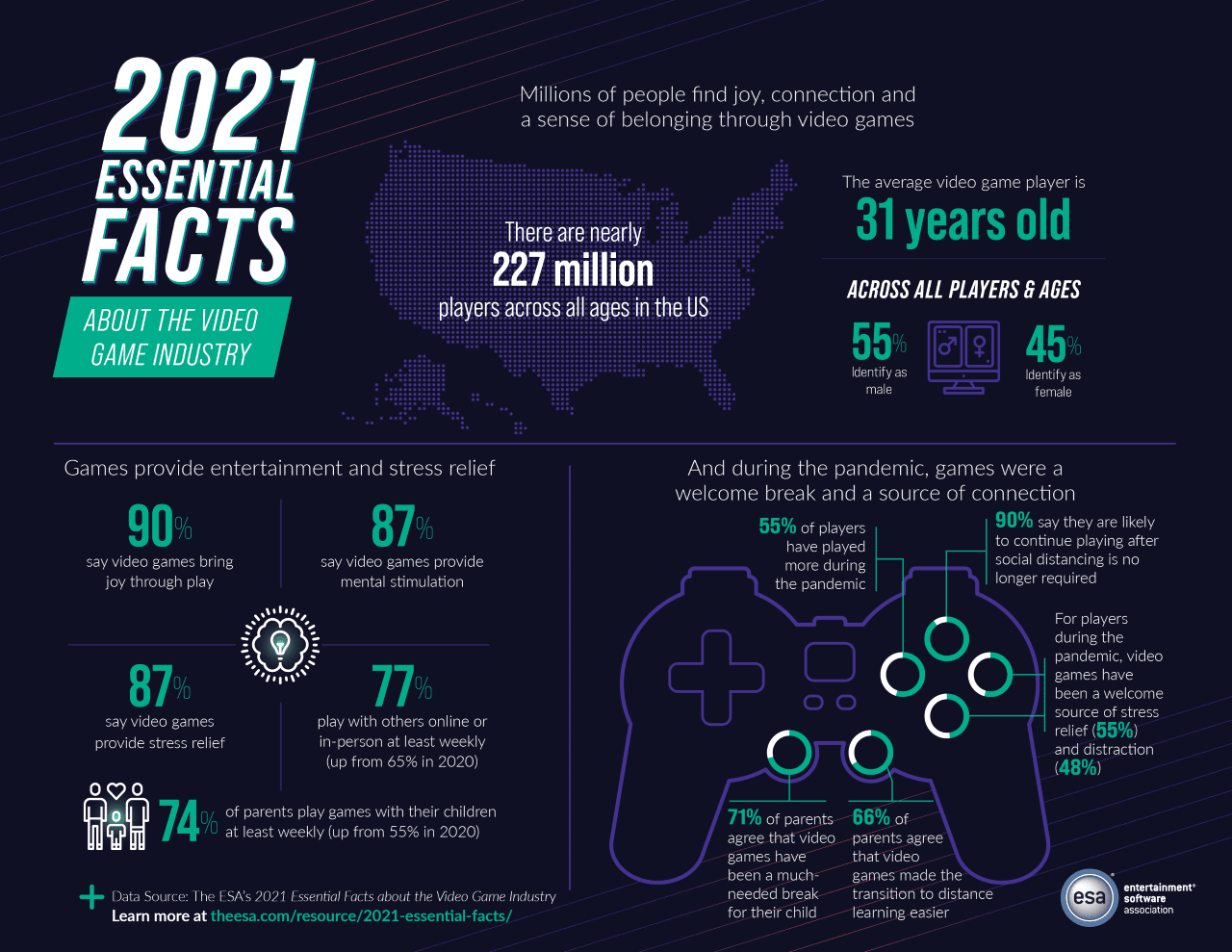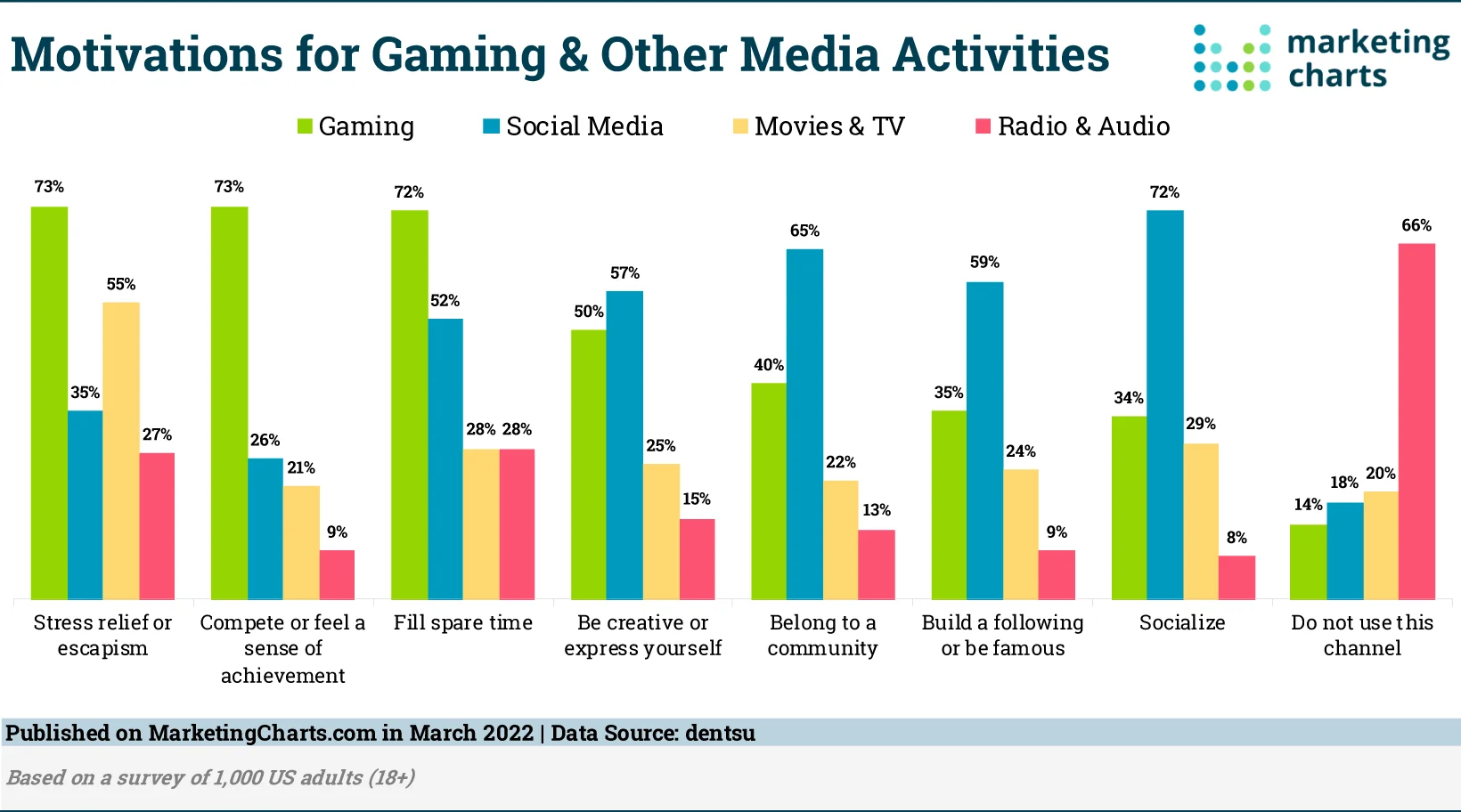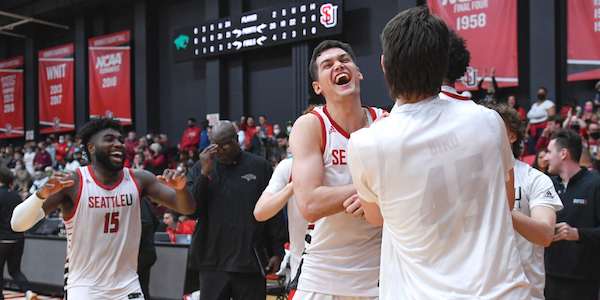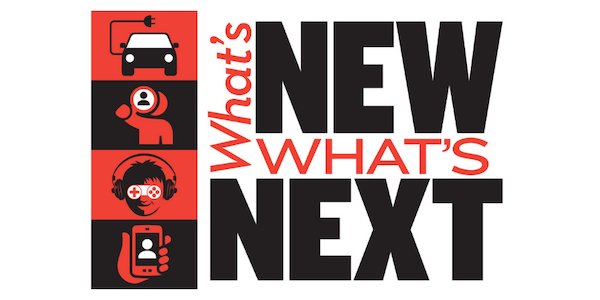
Social connectedness will grow significantly and you’ll see way more friend groups of mixed demographics talking about gaming like they may have talked about TV shows or fashion trends a decade ago.
Connor Bridgeman Brand Manager, Humble Games

Connor Bridgeman, Marketing ’17, is a brand manager at San Francisco-based Humble Games. The publishing team he works in supports small- to mid-sized game developers by helping them finance their games and providing overall publishing services, including marketing support. Bridgeman puts together the marketing plans and go-to-market strategies for their game portfolio. He’s owned the go-to-market strategy for over 13 games, including Slay the Spire and Temtem. Before Humble, he worked on AAA franchises such as The Sims, Star Wars Battlefront II, Rainbow Six Siege, and Assassins Creed at Ubisoft and EA.
What are some things about gaming that people don’t normally know about?
Gaming culture has become massive in the last few years. The gaming industry surpasses the movie, music, and sports industries in terms of yearly revenue and has been the fastest-growing entertainment sector since 2006. It’s enormous, and it’s growing exponentially.
Every new generation has increased in proudly proclaiming gaming as a part of their identities. The world of gamer stereotypes that we may have grown up with has completely changed. Games are being created by and for people of all demographics, cultures, backgrounds, and play styles. Odds are, there are dozens of excellent games built with you in mind that you just haven’t discovered yet.
What sets Humble apart from the rest?
Since Humble's first bundle in 2010, raising money for charity has been at our core. Through purchases on HumbleBundle.com, the incredible Humble community has helped raise over $200 million since the company was founded, including over $20 million to organizations on the ground helping people in Ukraine with our most recent all-to-charity bundle in March.
Humble Games is the video game publishing division of Humble Bundle and we are exploring ways to further integrate gameplay experiences directly with giving back.
How did the pandemic impact gaming?
Overall, gaming experienced huge growth during the pandemic as people were quarantined inside and needed new forms of entertainment that also helped maintain social connections. Console sales leapt and became difficult to find in stock, despite being near the end of their lifecycles, and odds are you or someone you know bought a console for the first time.
Infographic: Video Games in America
Data from IBISWorld
Culturally, gaming took over as well. Pop culture latched onto Animal Crossing as a quarantine coping mechanism. Among Us, a micro-sized unknown indie game launched in 2018, catapulted into the stratosphere of mainstream culture through content creators, with even US politicians joining in. You may have played a Jackbox Party Pack game with your coworkers or family. Everyone was playing games, even if they had never called themselves a ‘gamer’.
Where do you think gaming is headed? Especially with all this talk about the metaverse?
The million-dollar question! Let me start my answer by saying this is very much my perspective and I am not commenting on behalf of Humble.
Personally, I view the discourse of VR/AR/IR and the idea of the ‘metaverse’ (which I use in quotations as it’s a broad term that marketers have oversimplified) as simply an expansion of how people may enjoy playing games and participating in gaming culture. The idea of the metaverse is a spin-off of what the internet has been doing culturally for decades. In the past, we had more separated lines between our physical and digital personas. As we’ve seen in recent years, those lines have continued to blur.
In short, the future is right here. New platforms and new trends may rise and fall. But in the end, the future of gaming is being able to play games anywhere at any time. Gaming, like all tech, is expanding beyond 2D spaces, like screens, to 3D experiences like virtual reality, augmented reality, or integrated reality. But that doesn’t mean 2D is going anywhere anytime soon, try getting the same relaxing benefits of sitting on a couch to sweating in virtual reality.
Infographic: The Average Video Game Player is 31 and Other Gaming Stats

Data from Entertainment Software Association
Social connectedness will grow significantly and you’ll see way more friend groups of mixed demographics talking about gaming like they may have talked about TV shows or fashion trends a decade ago.
You’ve been in the gaming industry for quite a few years now. What drew you to it?
Gaming has been a passion and hobby for as long as I can remember. Some of my earliest memories were playing video games with my family and friends, it’s been a massive part of my life.
Once I realized I would never be a 6’4, 220 lbs professional athlete, I decided that the games industry was my next path. I spent a lot of my free time playing games, reading about games, and learning about games, so I felt, ‘why waste all this knowledge and time I’ve spent on this?’ and dedicated myself to finding a way to work within the industry as early as high school.
Nowadays, I love working in the industry because I am surrounded by some of the most creatively talented and driven people in tech. People don’t work in games for the money; people work in games because they’re either extremely passionate about their work or want to work with the latest and greatest technology. It’s wonderful working in an industry where almost everyone has at least one shared passion.
What excites you and, conversely, what keeps you up at night?
During my time with Enactus, a social entrepreneurship club at Albers, I realized that I had a passion for helping people realize their passion projects. We helped build business plans for people that dedicated their lives to building non-profits. They weren’t in it for the money, but they were in it to make a difference or invest in something they truly cared about.
At Humble, and where I am in the industry, I work with similar people. Most of the developers I work with are small teams, from solo developers to maybe a dozen. Many of them had very successful careers but they quit their jobs and took the insanely risky move of making their own games. We believe and invest in their projects, and I get to help bring those ideas to life and spread their passion projects to the world, and hopefully spread joy. It’s very fulfilling.
What keeps me up at night? Despite the joy they bring, making and publishing games is a long and difficult process. Our developers may work on their passion projects for years before they see a public audience, so there’s always a lot of nerves leading up to launch day.
We plan as much as we can to bring as many people into a game for launch as possible, and frequently the road to a successful launch can be foggy and full of doubt. Every game released is a small miracle. That’s not an overstatement. The amount of work behind the curtain to bring a game to market is massive even for the smallest of games.
To make it all worth that effort, my goal is to find the specific people that will fall in love with our games and developers and make them aware, so they spread that to others. My job feels more akin to a matchmaking service because, in the end, the developers and myself consider it all worth it when people express their love and anticipation for their life's work.
What advice would you give to an Albers student who’d like to work in gaming like you?
Gaming and entertainment, in general, are incredibly competitive right now, but there’s also a huge need for new talent. You will not get a job out of college in the games industry with just a degree unless you know someone who knows someone who works at a big publisher. What you do OUTSIDE the classroom makes you stand apart from everyone else with a business degree and an okay GPA.
If you are fortunate enough to have lots of free time, like some college students do, go work on something that isn’t classwork. It doesn’t need to be successful; it just needs to show that you have some specialized talents and knowledge.
I didn’t get any ‘legit’ internships in the industry during college, so I made my own. You’d be surprised by how many people will take your help if you just volunteer your time. I found small indie game teams that just needed a warm body to think about business development and marketing so they could focus on making the game.
My few marketing classes gave me more knowledge than the developers had about business, so they looked to me for advice. That led to me going to conferences, pitching the game to publishers or partners, industry parties, and networking with professionals.
By the end of my senior year at Albers, I had helped co-found an indie publishing company called Akupara Games, launched a game on multiple platforms, and worked part-time in the games industry for two years. Eventually, my networking paid off, and I was referred to a job at EA by a friend I had made at a conference party.
You can make your own success, you just have to be strategic about your path and deliberate with your tactics. Have a vision, control the variables you have control of, and don’t let the uncontrollable parts get you down. You’ll get where you want to be if you follow that.







